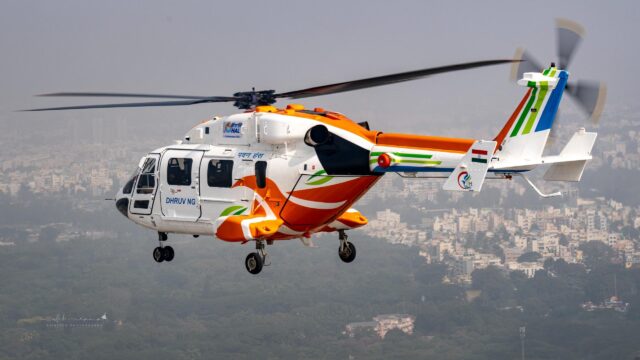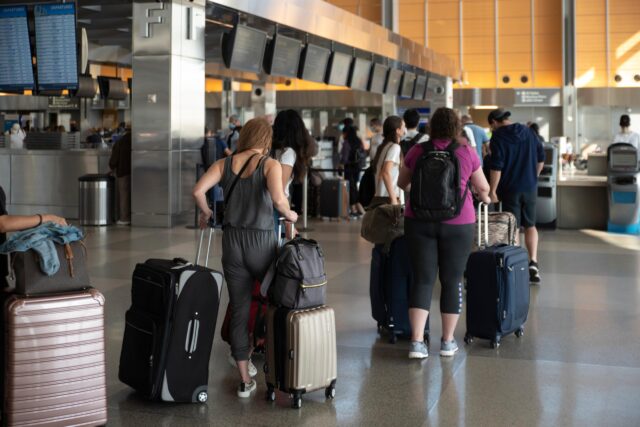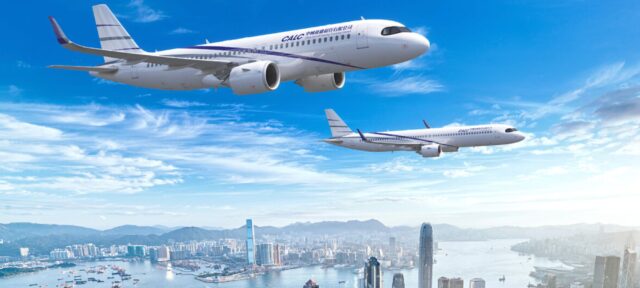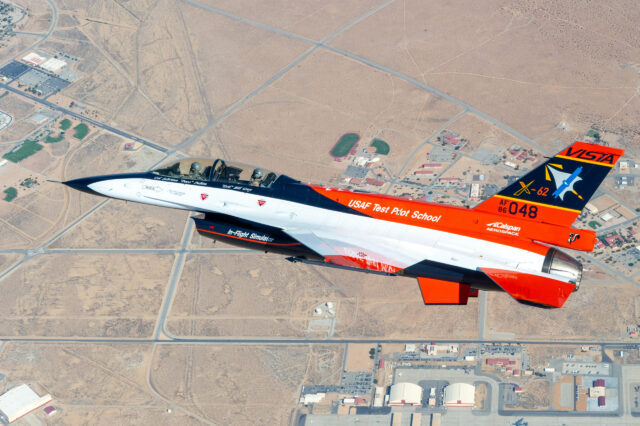VÆRIDION to test battery tech on Deutsche Aircraft’s D328 UpLift flying test bed

September 23, 2025

Munich-based VÆRIDION and Deutsche Aircraft have signed a Memorandum of Understanding (MoU) to collaborate on flight testing and technology development. The two will combine their expertise in electric propulsion, aircraft design, and sustainable aviation fuel (SAF).
As part of the agreement, VÆRIDION’s advanced battery technology will be tested on the D328 UpLift flying test bed, operated by the German Aerospace Centre (DLR). Deutsche Aircraft will contribute its experience in structural engineering, industrialisation, and testing processes to support the development of VÆRIDION’s Microliner, a nine-seat commuter aircraft.
Microliner and D328eco: two pathways to cleaner aviation
VÆRIDION is pursuing a fully battery-electric solution with its Microliner. The 100% electric aircraft is designed for short-haul routes of up to 400 kilometres, and features modular wing-integrated batteries and a glider-inspired design. The company aims to provide affordable, zero-emission connectivity for underserved regional markets.

Deutsche Aircraft is developing the D328eco, a 40-seat regional aircraft designed to operate on 100% sustainable aviation fuel. The aircraft is a next-generation successor to the Dornier 328, and leverages the OEM’s system integration capabilities as Germany’s only certified aircraft manufacturer.

The company has been steadily moving the programme forward, including the rollout of its first D328eco test aircraft (TAC-1) earlier this year, and the integration of Garmin’s G5000 Prime flight deck into the turboprop.
Advancing emission-free regional flights
“This MoU marks a pivotal moment in our journey toward emission-free regional flights,” said Markus Kochs-Kämper, CTO and Managing Director of VÆRIDION. “By uniting our technological expertise with Deutsche Aircraft’s long-standing engineering excellence and design quality, we aim to accelerate the Microliner programme and provide sustainable, cost-effective air travel solutions to underserved markets in Europe and beyond.”

Frederic Fischer, Head of R&T at Deutsche Aircraft, stated that the partnership underscores the increasing significance of collaborative innovation. “We are proud to collaborate with VÆRIDION in shaping the future of regional aviation. This partnership reflects our shared commitment to innovation, sustainability, and the transformation of air mobility,” he said.
Bavaria as a hub for innovation in green aviation
This MoU also reflects a regional strategy for accelerating European clean aviation goals by leveraging collaboration and shared expertise in Bavaria’s aerospace cluster.
Both companies are based near Munich and maintain a presence at the AirTech Campus in Oberpfaffenhofen, a cluster of aerospace activity that includes startups, research institutes, and established players.

Their work also aligns with Deutsche Aircraft’s industrial ramp-up plans, including the construction of its new final assembly line at Leipzig Airport, developed in partnership with Weerts Group.
The facility will eventually produce up to 48 aircraft per year. However, the programme has faced headwinds, with the entry into service of the D328eco delayed to Q4 2027 due to certification and design integration challenges.
A focus on decarbonising regional flights
By collaborating, VÆRIDION and Deutsche Aircraft can cover a wide range of regional aviation needs. Battery-electric designs, such as the Microliner, promise zero-emission operations but face challenges related to weight, charging infrastructure, and limited range.
SAF-powered aircraft, such as the D328eco, offer more immediate reductions in lifecycle emissions while remaining compatible with existing airport infrastructure and supporting longer-range operations.

The collaboration comes amid increasing efforts to decarbonise regional aviation. Startups like Heart Aerospace, with its hybrid-electric ES-30, and MAEVE, with its Maeve Jet, have also set their sights on the commuter and regional markets with new propulsion concepts.
Regional aircraft manufacturers ATR and Embraer are also pursuing hybrid and SAF-based solutions.
All these projects acknowledge that multiple technologies will be required to achieve net-zero aviation by 2050.
The work between VÆRIDION and Deutsche Aircraft could accelerate certification, testing, and industrialisation timelines. Together, they could bring both battery-electric and SAF-powered next-generation aircraft into service before the end of the decade.
















